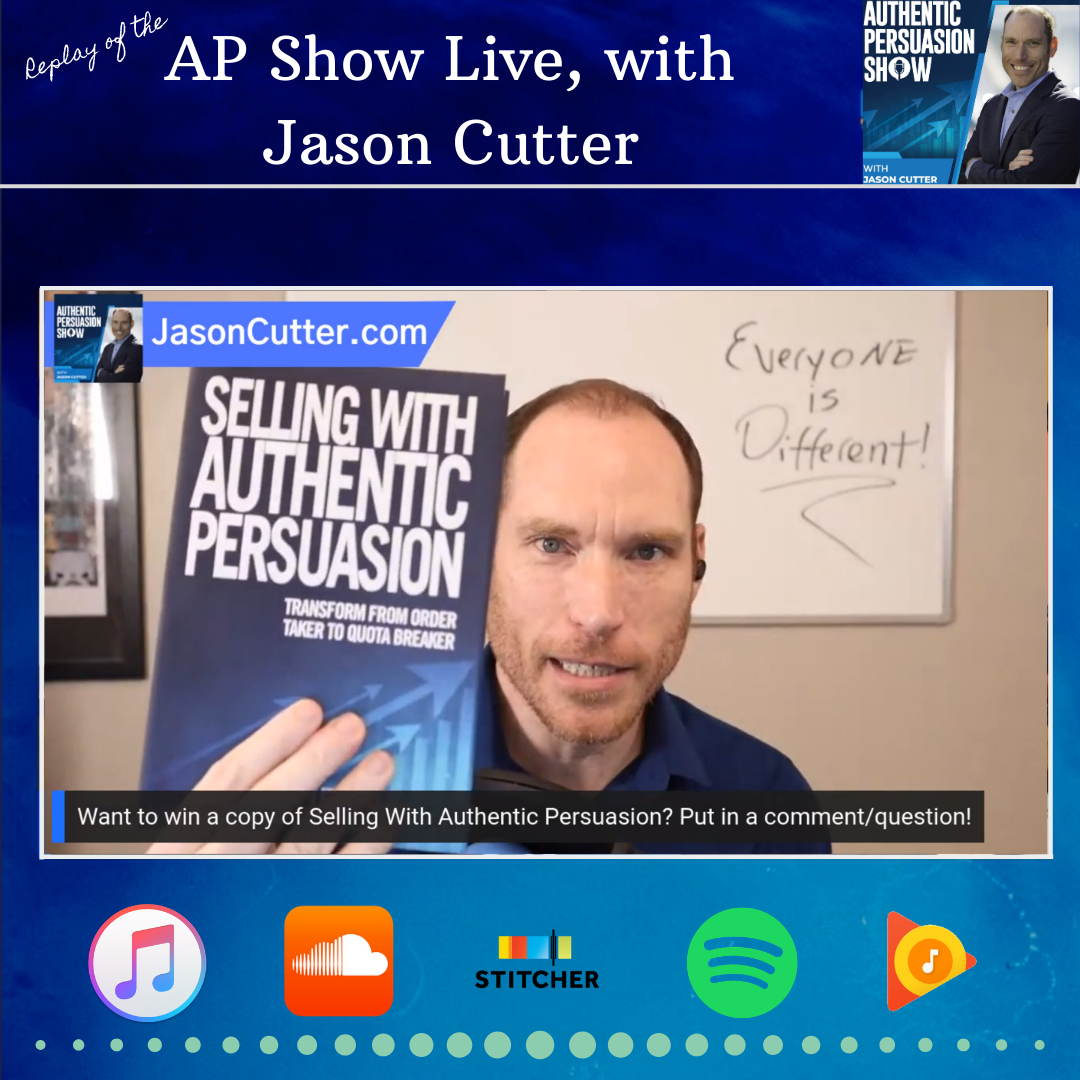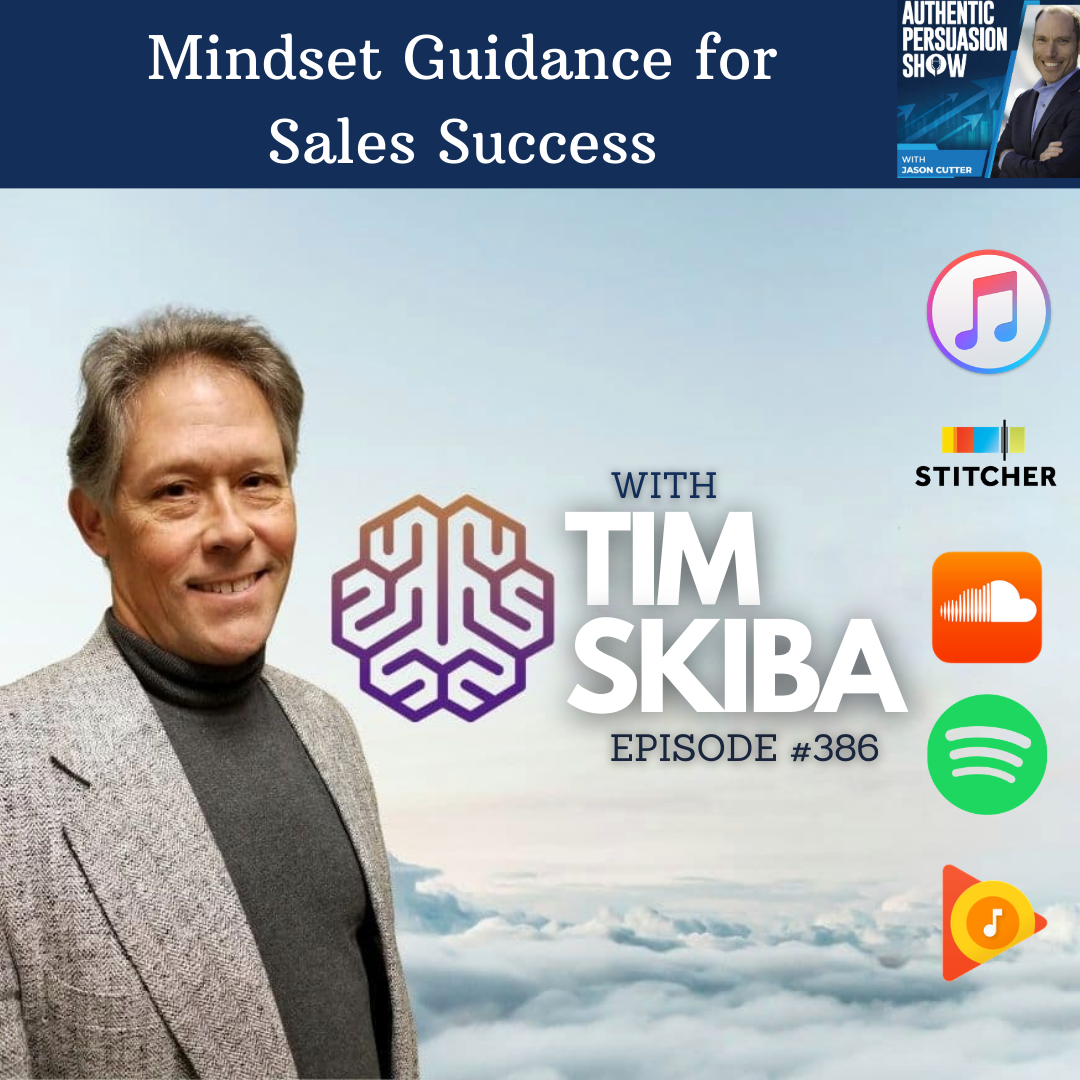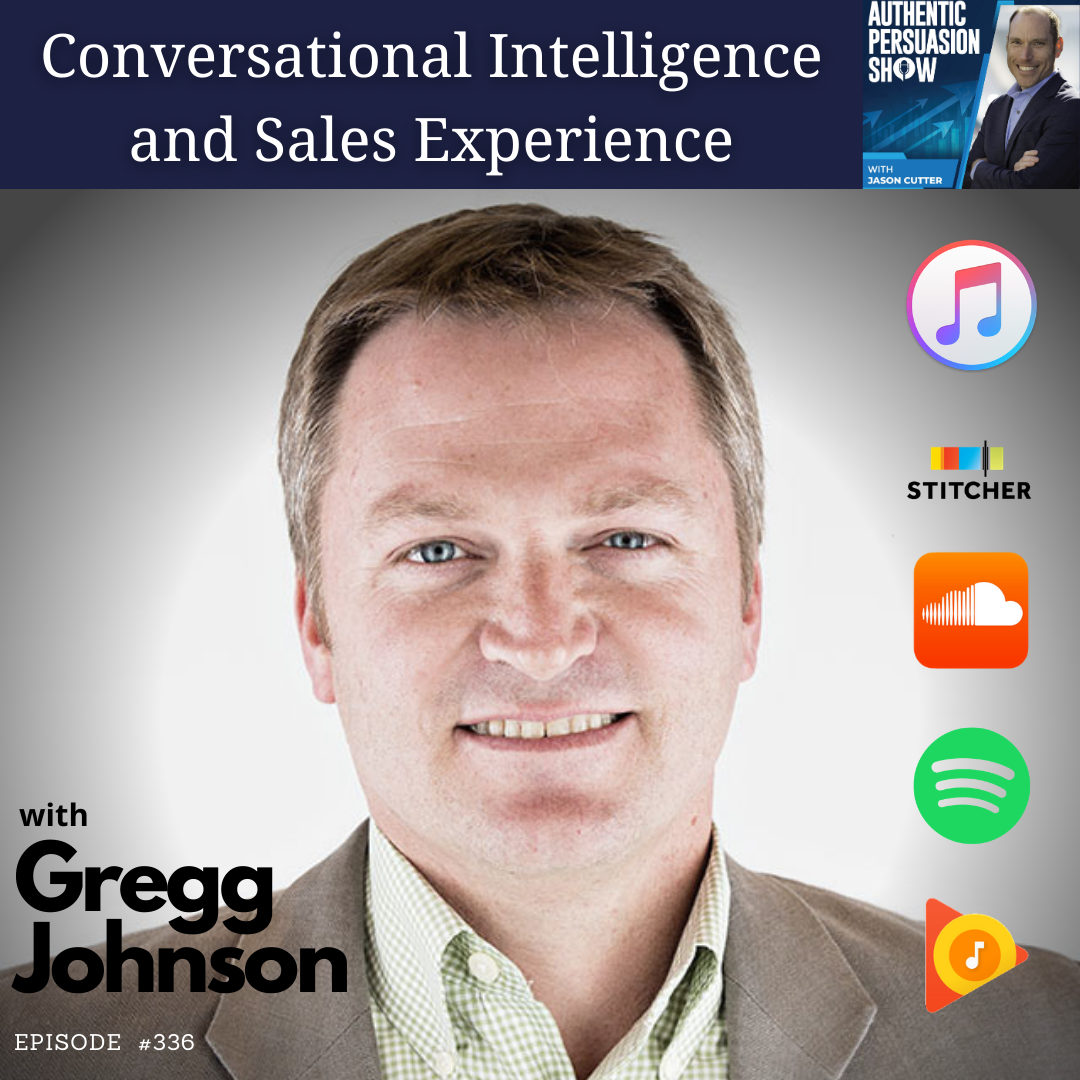Episode Transcript
Jason: Welcome back to the sales experience podcast. Welcome to part two of my conversation with my, if you didn't check it out, listen to part one yesterday, we're going to continue the conversation talking about diversity and then chief revenue officers, revenue ops, and what that looks like in organizations and how to bridge those gaps.
So here you go without further ado, part two.
Maya: Really taking stock of who they are as a person, not just a professional. Because at the end of the day, nobody likes getting sold to, right? Like they like this collaborative partnership that results in a mutually beneficial outcome for both parties.
Jason: And what's sad is that not just in sales, but in life, a lot of people don't pay attention, don't use things like active listening, don't file away information because they actually care.
And then don't bring it up later or show any kind of concern or memory of it. It happens in life. It's not just sales. People who are in sales are probably the extension of how they might be in their own life. Where they're just asking questions, going through the motions, trying to make sales, just pushing things forward.
But what you're talking about is actually caring about the other person and making notes. Which I know for me, it's funny, as you're talking about it, I'm thinking I used to do that as well. I would make notes. On my lead sheet, right? This is pre CRM. There's a long time ago. I would make notes. And then when I call that person back, I'd be like, Hey, I don't even remember we talked last week.
I'm just following up. You had to go because it was your kid's soccer game. How did that go? Did they win? And it just shocks the crap out of them because they're like, This dude actually remembered and actually cared enough to ask, which maybe nobody else in their life is even thinking about it or caring, yet here I am.
And yes, I'm trying to sell something, but it's a totally different game.
Maya: Yeah, a hundred percent. And that happens. to me all the time because I am taking these kind of detailed notes and it's fun for me that I enjoy doing with our team. We do these relationship brainstorm sessions and we go through our networks and we just spitball and come up with Hey, trying to get in and talk to sales leaders at these three companies.
Anyone have connections to them? Be it on LinkedIn or be it through their kid plays soccer with X kid. They might not be friends on LinkedIn. And so we've done these sessions recently and they're so fruitful for the reps, for the sales leaders to start to think outside the box of how we can manage our networks in a way that really ultimately builds community and makes us realize that.
Six degrees of separation is real and you're closer to the people you're trying to get to than you think.
Jason: And if your goal is relational selling, where you're selling to somebody who is going to be a customer of your organization longterm, right? Maybe you don't even talk to them. There's a lot of times where organizations are so siloed, where there's the salesperson, they sell transactions done, they're moving on.
Maybe they're not coming back to you later on because you're going to help them with career advice or help them find another job, like what you're talking about. But sometimes you're just done. Like you finish that process. You're never going to talk to them again. And they move on to the backend, right?
To account management, to customer success, whatever that looks like in an organization. If the goal is for them to be a long term customer of the company and to be a raving fan and to be excited with what they just bought. If you want that to happen, you've got to do this relational upfront with intention, right?
I keep saying that, but it's all about that purpose because I see a lot of people build a rapport and then they don't have sales to go with it. They're too much on the relational side.
Maya: Yeah. And that's absolutely a pitfall that I've seen folks fall into is that they rely on the relationship and they don't drive enough in a process.
Because often folks need to be told how the process works. And so that's definitely something that the educational aspect of, okay, typically, this is what happens between now and when you come on board as a customer or beyond. This is what it looks like once you are a customer. This is what year one, year two looks like.
But I think what's so interesting about what we just talked about. Is those teams need to be more interconnected? And that's something that in my world of revenue operations in particular, we are trying to break down so many of these silos that are just inherent in organization. The difference between CS, between AM.
Account management between sales and marketing. And really, how do we weave that together so that the customer has an experience that doesn't feel disjointed, like they're going from step one to step two to step three, and that feels cohesive and like they're cared about throughout the whole process,
Jason: Which is interesting cause that's one of the topics that I want to talk about. Cause I know you have. A marketing background or selling to marketers in this revenue ops, which to me is a newer term, right? I can't remember that being a term too long ago. I feel like there's a new thing encapsulating it. Same thing with like revenue ops being sales, marketing, customer service, sometimes all of it, right?
The CRO, the chief revenue officer is everything that could either generate revenue or maintain revenue, which is where customer service account management. There's upselling, but there's also retention. There's making sure the customer's moving forward and staying on board. And it is fascinating to me, all the organizations I've ever met and seen.
Who do silo it and it's marketing versus sales instead of marketing and sales growing the same direction. One thing I've seen is that sales people worry about only being able to win if they use manipulation, tricks, tactics, and hard closes. So they end up struggling to close deals, make their quota, or earn the kind of money that they want to make.
If this sounds like your current situation, or maybe you want to make more money in sales without feeling like you're selling, then my upcoming book called Selling with Authentic Persuasion will help. In it, I'm going to take you on a journey to transform from order taker to quota breaker. If you're ready to become an authentic persuader, crush your goals and create success in your sales career, then go to jasoncutter.com. Again, that's jasoncutter. com and pre order the book today.
Maya: So that's what we're really passionate about. And I think what we've seen is that, and I've seen as a seller at the organization that do this well, a hundred percent of the time. Are closing more business than they did before they made the change to having a true revenue ops function or integrated ops.
Sometimes it's called the ones that are moving from that really siloed world of having sales ops and marketing ops and even CS ops. All alongside each other, but not working as a team. Those are the ones that struggle because stuff falls through the cracks, right? Inherently with the silos. It's been a fascinating change, and I think we're going to see it even more so now in the next couple years here.
Jason: Yeah, organizations have set some kind of tone and framework that it does work. That it can go against the old classic ways that organizations are set up. The fact that there is a title, the chief revenue officer, which would then be the umbrella for all of those departments is a sign that it can work and gives that playbook to other organizations.
I know for myself, many times in an organization, because we didn't know what to call it because there wasn't this chief revenue officer or. VP of Revenue Officer. I've literally had the title of VP of Sales, Marketing, and Operations. Like it was very long. It was hard to fit on a business card, but that was literally it.
It was the top of the org chart. It was me. And then it was everybody else across nine different departments. Because just what you're talking about, I don't care about the different departments and they think they're different or they think they're more important to the process because they're not really for me.
What it is that it's one customer through the whole journey, and that's what matters the most, right? So marketing is beginning the conversation. Sales is picking it up from their customer service, account management, the fulfillment side, the billing, retention, anything to do with that. Like it's. It's still the same customer and it should be treated as one cohesive thing.
And so I am super excited to see this revenue ops model take hold because that's a game changer for the mindset in organizations. Yeah. And
Maya: I'm glad you brought up billing because we're seeing to that finance is increasingly a part of these conversations because they're focused on renewals. They're focused on retention.
They need to understand what is being forecasted and what that looks like from a resource allocation perspective. So I think that's actually going to be the next wave of who else is coming into this RevOps world. And we're seeing that dramatically here in the wake of COVID that CFOs are becoming increasingly the decision makers even on revenue focus purchases or decisions because they have so much control over resource allocation. And as like operating expenses are changing dramatically and plans are changing, they have to have that visibility into all the rest of the funnel has helped with and done.
Jason: And I have seen that with some of my consulting clients who are in the software space.
Where these conversations are coming up, they're talking to, let's say, A CMO or VP of Marketing somewhere in that space. And then the next thing in their process is, okay, let me bring in the CFO for a demo and to see what it is and to look through it and see if it makes sense, because they're more the decision maker than maybe even the CEO or the president.
Yeah. The president's got all these people on the team to make these kind of decisions and the chief financial officer. Which then can be scary for a lot of salespeople because they're like, Oh yeah, that person's not going to agree to it. They're not going to spend money. You just got to be able to speak their language and help them see the value and whatever the ROI, because there's always an ROI, whether it's financial, whether it's time saving, whether it's retention of employees, there's always something.
And so you've got to be able to Confidently share that and show that to anybody.
Maya: So we're inviting the CFOs and their office of the CFO folks into our deals early. We want them to be involved because we know ultimately they're becoming more of the signer on these. Agreements. They're also the ones who are the gatekeepers to whether it's a short term agreement or a long term partnership.
And the more you can make them feel comfortable early versus the CMO going and tapping on the shoulder of the CFO hour like, Hey, I'm going to spend this on that. And then saying wait, I have no clue what this is, how it's going to move the needle for our business. That's problematic. And I think salespeople need to get ahead of that, especially in this era of frozen budgets.
All right.
Jason: That's it for part two. As the drill. If you've listened to the show before, go to cutter consulting group. com slash podcast show notes links. Get in touch with Maya. She's amazing. This conversation is great. Spoiler alert. All four parts are fantastic. And she has a lot of value from the inside of organizations and being a female in Silicon Valley selling high tech.
So it's a great conversation. Valuable for everybody. So make sure to subscribe, tune into all four parts. As always, I'm gonna leave you like I always do. Keep in mind that everything in life is sales and people remember the experience you gave them.
![[E247] Directing Revenue, with Maya Connet (Part 2)](https://episodes.castos.com/salesexperiencepodcast/images/TSEP-Maya-Connet-Cover.png)


